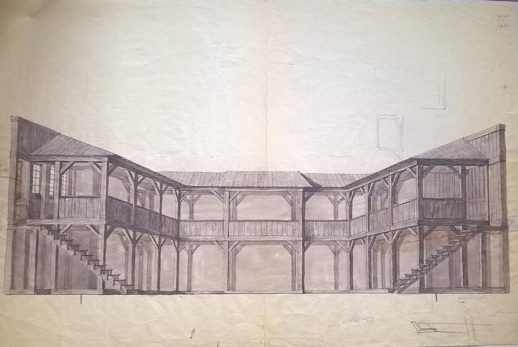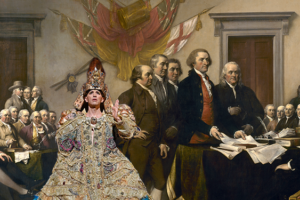

Irving Kolodin in the Saturday Review:
In this sixth “Falstaff” that [Franco] Zeffirelli has staged and designed in various parts of the world, the light as well as the shade are so brilliantly depicted in the action that even the unknowing should be captivated by its recreation of a bygone era…From its beginning in the musty but solid interior of the Garter Inn, through the sunlit garden with its flowering shrubbery and the elegant “lived-in” living room of Ford’s house to the strikingly evocative conclusion in the moonlit forest, it is a triumph of artistic mind over the highly material obstacle of flat floors, no machinery and inadequate ways of getting things on and off between scenes,
Into this self-created visual world, the still youthful Italian has cajoled into being a dramatic action that is animated but not stagy, full of lifelike touches-such as the burlap sack Falstaff plucks off the Garter wall in Scene 1 of Act III to wrap around him after his immersion in the Thames-that are ingenious without being obtrusive.
As [Leonard] Bernstein is five “Falstaff” productions behind Zeffirelli, his direction does not yet command the same assurance of touch. But there is no conceivable doubt that musical theater is his predestined milieu, that he gives more to it and it takes more from him that even his concert conducting. He plunged into the performance with a kind of bull-in-a-china-shop recklessness, tending to pull up and slow down when something fragile impends. But by the strength of his impulse, as well as the fertility of his mind, he achieved a sense of exhilaration in the pleasures of this marvelous score that is enormously infectious.
So much for the B to Z within the parentheses of Bernstein and Zeffirelli. Currently lacking is the A of a really distinguished Falstaff. Anselmo Colzani works hard, plays well, sings perhaps too much, doesn’t characterize as successfully as the text and words permit. There is little but joy in the musical ensemble otherwise (that little is the Ford of Mario Sereni, a rather stock Italian model rather than the English type wanted). Gabriella Tucci sings a delightful Alice and looks the “sirena” described in the text. Rosalind Elias is almost demure as Meg, and Regina Resnik reaches her career’s peak with a Dame Quickly that is not merely chucklesome but lovable. Judith Raskin was a sweet-sounding Nannetta and a delight to watch, a worthy companion to the assured Fenton of the accomplished Luigi Alva in his debut.























Comments